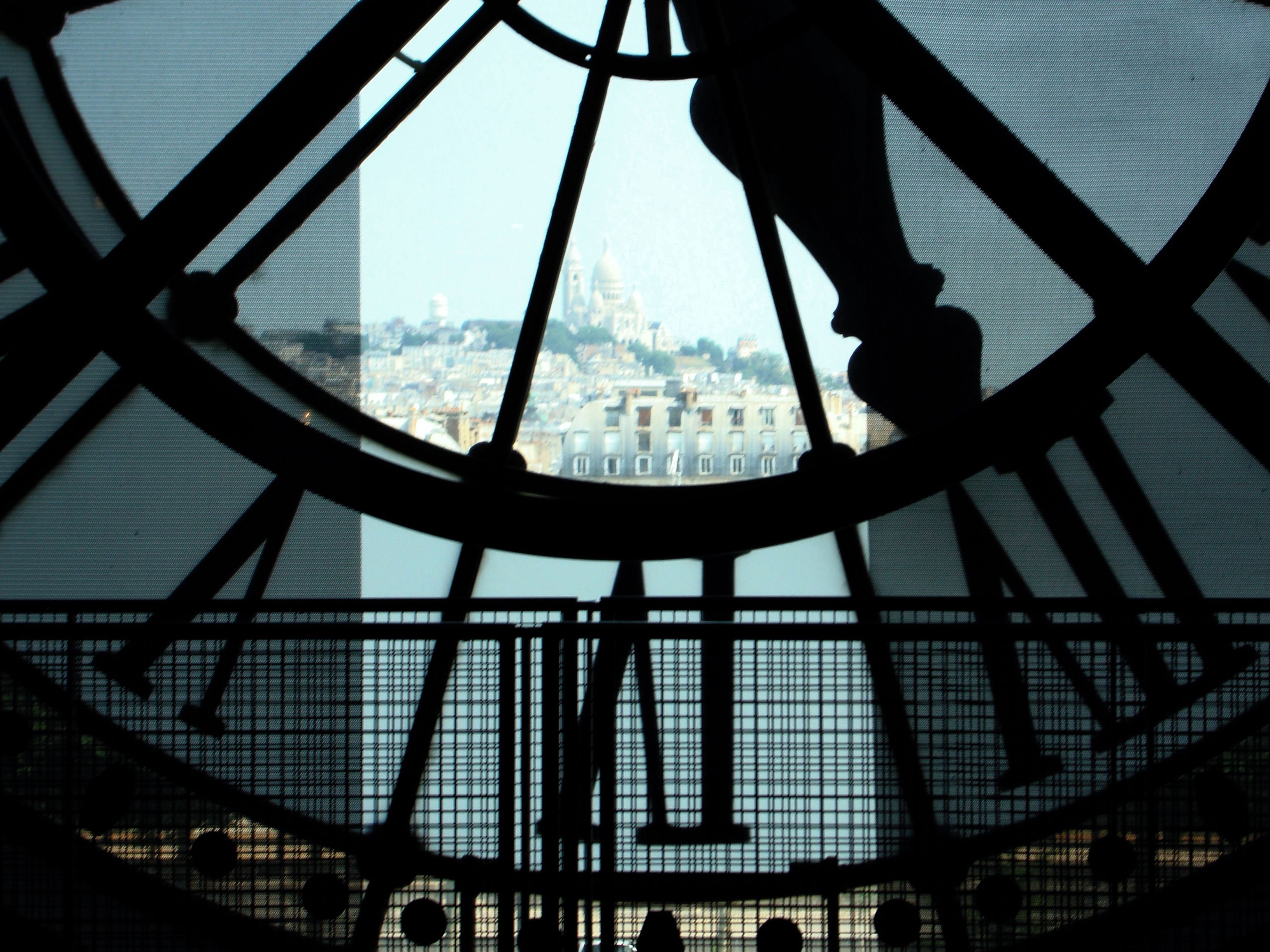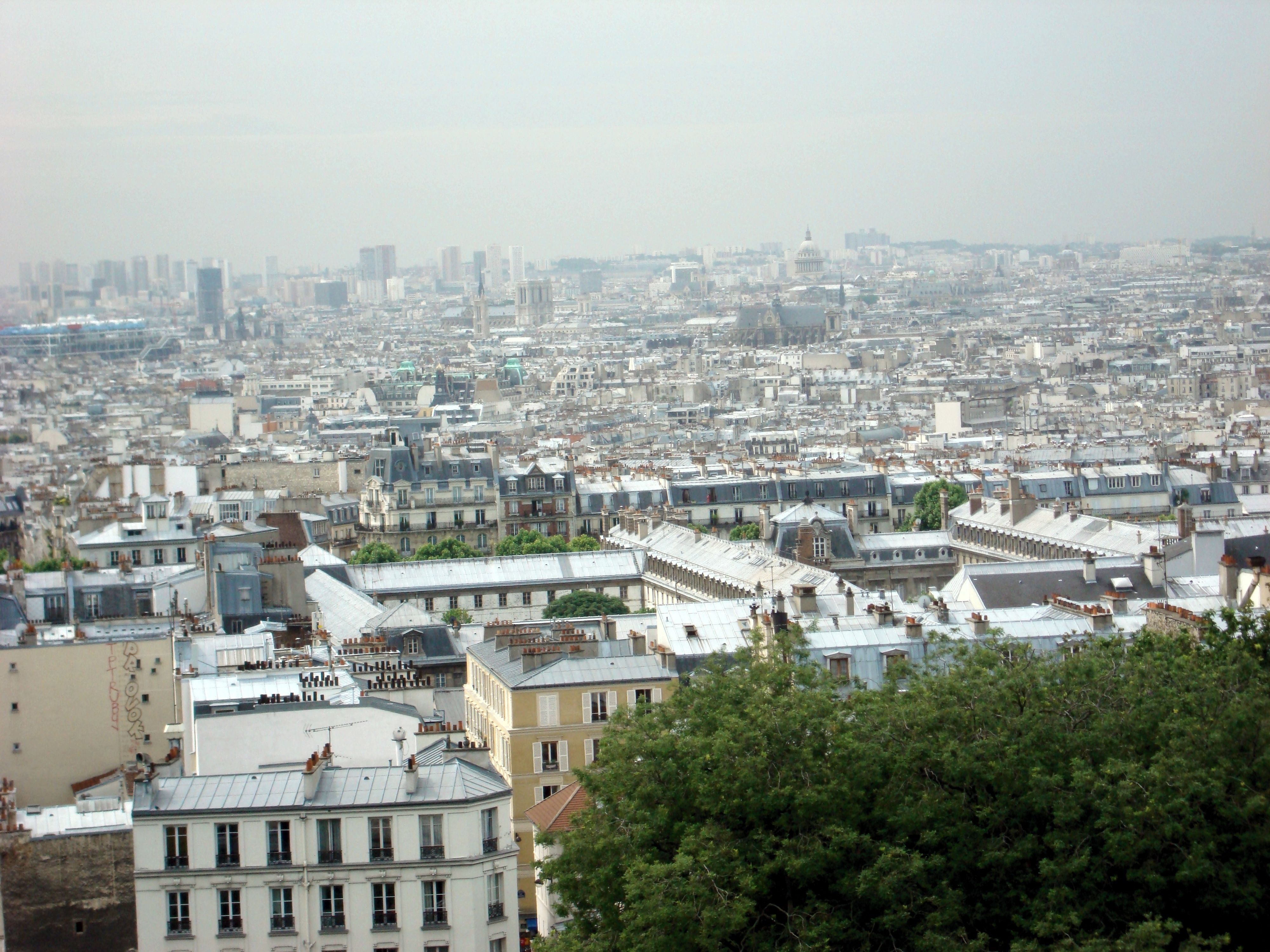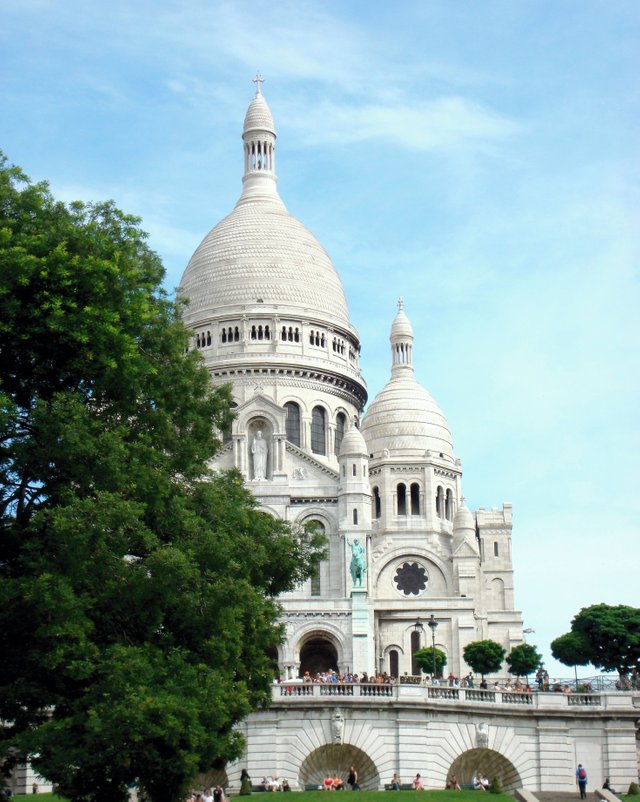
Through the clock of Musée d'Orsay, far out in the distance atop the summit of Montmartre stands a lonely basilica named Sacré-Cœur. Unlike most of the city of Paris, with buildings that take on a Baroque or Beaux-Arts architecture in the iconic Parisian Lutetian limestone, Sacré-Cœur was of travertine stone construction, in a gentle creamy white. It is a unique design and color contrast when compared to the rest of the city, so I decided to take an adventure away from my studies of Impressionism at Musée d'Orsay and visit this basilica on the hill.
After a quick ride on the Paris Metro, I hopped off at Anvers station and set my gaze towards the magnificent dome of Sacré-Cœur. From my view on the street below, this towering basilica appeared so close, yet I knew is was still quite far away from me. But it was a fine walk through the streets on that sunny afternoon and the summer breeze was most welcome on my stroll through Montmartre. There is a distinctive aroma to Paris; almost as if the limestone facades of the buildings provided by Haussmann’s renovation of the city was a deliberate choice to bring an almost earthy scent to the busy metropolis.
Not long after stepping out of the station, I found my way to the steps leading up the hill to Sacré-Cœur and already there were droves of tourists and artists flocking to this holy site. Tour guides were happily walking backwards while they were educating small groups on the history of Montmartre and most of the audiences were already prepared to ignore the docent’s stories of the city by taking endless selfies. One guide in particular caught my eye while I was weaving around the numerous groups to make my way up the steps, so I stopped behind his little group of elderly Americans to listen to his tales of Paris.
He was a slender man with grey wavy hair and his starch white polo shirt was neatly tucked into his high-waisted khaki slacks . His voice was deep but gentle as he spoke about the splendor of the city of Paris in English to his American guests. The streets of Montmartre had a seductive and beautiful history, so went his story, and all of the true artists and performers flocked to Montmartre to find their muse or release their creativity. As an intruding guest in his company, I could have confirmed his statements by providing a few words about La Belle Époque and the many artists that emerged and flourished during that period, but I was a silent passenger and I’m sure that he would get to it at some point during the tour.
So, I managed to climb my way up to the top of the steps as unnoticed member of the small band of American retirees with their whimsical French conductor gracefully walking backwards and continuously providing the most unique details about the lovely city that he has called his home for nearly half a century. And once at the top of the summit, the air became slightly more crisp than the streets below, a grassy sweetness with a touch of apple blossoms, and the view was by far the best I had seen yet. Fro atop the little hill in the North of Paris, you could see that splendor of the city the kind Frenchman was speaking about and the beautiful monuments peppering the uniformly compact buildings.

With the crisp air and gentle sunlight, a serene calmness and quiet was evident at the summit and after snapping a few photographs of the city, I turned my gaze toward Sacré-Cœur once again.

As the little American band of retirees approached the basilica and snapped some pictures, the Frenchman pointed out that it was ironic that this basilica, called the Sacred Heart in English, was built to honor those lost during the Franco-Prussian War, then had its consecration delayed by the First World War, and lastly used as target practice for artillery during the Second World War by the invading Nazi armies. His hand gestured toward the basilica and he pointed a slender finger at the massive dome. “This was protected by God,” he claimed. “Shells bounced off the dome and the blasts of the enemy could only shatter her windows.” It was a very bold claim he made, but the good story he told the little group of tourists may not have been an entirely true one, they enjoyed it all the same.
The American troop pressed on to join the queue for the entrance of the basilica after the brief moment of taking photographs and listening to their guide’s history lesson, so I parted from the group to explore the the sacred grounds alone. Unsurprisingly, all of the tourists were in a tremendous hurry to get inside and view what the interior of the great basilica had to offer, but I thought my time would be better spent gazing at the architecture.
After a few hours of touring the massive monument and viewing the tranquil gardens, the design of Sacré-Cœur remains an absolute wonder to me. With its numerous arches and gargoyles and stonework, it is no wonder why so many artists have flocked to and continue to flock to this monument to paint or sketch the magnificent details that went into the construction. There is a serene beauty about this basilica and it has encouraged me to seek out more buildings like this, to observe and admire the wonderful things that have been beautifully built, and to share with the world what captivates my lonely sacred heart.
Image Sources: @dragonharvest
This post was resteemed by @resteembot!
Good Luck!
Learn more about the @resteembot project in the introduction post.
Downvoting a post can decrease pending rewards and make it less visible. Common reasons:
Submit
Congratulations @dragonharvest! You received a personal award!
You can view your badges on your Steem Board and compare to others on the Steem Ranking
Vote for @Steemitboard as a witness to get one more award and increased upvotes!
Downvoting a post can decrease pending rewards and make it less visible. Common reasons:
Submit